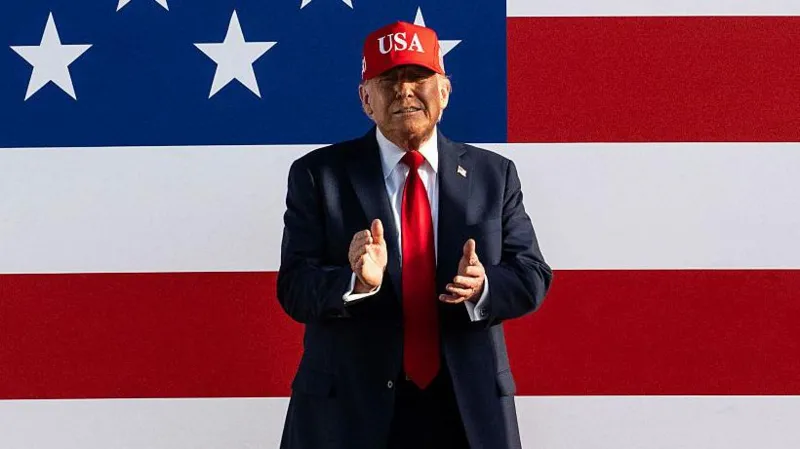In a bold and potentially disruptive move, U.S. President Donald Trump has declared his intention to impose an additional 10% tariff on goods from nations that align with the policies of the BRICS alliance, particularly when those policies are perceived to run counter to American interests. This significant statement was made via Trump’s Truth Social platform on Sunday, signaling a further escalation in trade relations and a hardening of his stance on international economic cooperation.
Trump articulated this new policy with explicit terms: “Any country aligning themselves with the Anti-American policies of BRICS, will be charged an ADDITIONAL 10% tariff. There will be no exceptions to this policy.” This declaration follows recent criticisms from BRICS members regarding Trump’s existing tariff policies and their proposals for reforms within the International Monetary Fund (IMF) and broader discussions on global currency valuation.
The BRICS bloc, initially formed by Brazil, Russia, India, China, and South Africa, has recently seen a significant expansion, incorporating Egypt, Ethiopia, Indonesia, Iran, Saudi Arabia, and the United Arab Emirates. This enlarged group now represents a substantial portion of the global population, making any policy shifts impacting trade with these nations a matter of significant international concern.
The alliance has been positioning itself as a counterweight to Western economic influence, advocating for a rebalancing of global institutions and providing a platform for diplomatic engagement amidst increasing trade conflicts and geopolitical instability. Trump’s latest tariff threat underscores the growing divide and the administration’s proactive measures to counter the collective influence of nations perceived as challenging U.S. economic dominance.
The move is expected to have far-reaching implications for global trade, potentially forcing countries to choose between aligning with U.S. economic policies or facing increased trade barriers. The specific impact on individual nations and the broader global economy remains to be seen, but the announcement signals a period of heightened economic diplomacy and potential trade friction.

